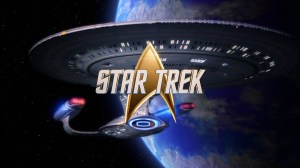
Following the purchase of 20th Century Fox by The Walt Disney Company, a variety of superhero properties have been potentially united under the wildly successful Marvel Entertainment umbrella. There’s now a possibility that audiences will see the Silver Surfer and the Fantastic Four appear in the MCU. No possible crossover looms larger than a reunion with Marvel’s merry mutants, however. The X-Men have been a dominant force in movie theaters for two decades and a fan-favorite in the comics for far longer. They are an essential component of Marvel Comics and one that have been stuck in their own corner of superhero movies until now.
Videos by ComicBook.com
Things aren’t quite as simple as they appear. Marvel Entertainment appears to already have much of their fourth phase of films scheduled and we can only guess at how much planning exists beyond the next few years. Bringing the X-Men into the MCU isn’t as easy as having Nick Fury walk on screen, stare at the audience, and announce, “Hey everybody, we got mutants now.” There’s some good and bad news mixed in with the potential return of the X-Men to Marvel Entertainment, and at least one potential solution as to how the producers involved could make this work.

The Good News
The good news was the most obvious part of the announcement that Disney would purchase Fox. While the current X-Men franchise had produced some true classics in the superhero genre (i.e. Logan and Deadpool), the ongoing saga of their mutants was struggling, even from the most charitable perspective. Just like the comics, it now contained reboots and multiple timelines, all of which were a bit muddled. Many of the actual X-Men films had suffered from poor reviews and middling box office; the two most recent installments of Apocalypse and Dark Phoenix were all-time lows that put the final nails in that X-coffin.
Shifting the X-Men properties to a new studio provides a perfect opportunity to reboot the entire franchise, leaving all the ill will behind and giving audiences a genuinely fresh take on these characters. While many will miss Hugh Jackman as Wolverine, he and other actors in the franchise have been given a long run and some pretty definitive endings. With little to lose and a lot to gain, the X-Men are prepared for a brighter future than ever before on the big screen.

The Bad News
There’s an asterisk to that hope so big it could be its own star, though, because including the X-Men in the MCU is a really difficult proposition. A large part of the MCU’s success is predicated on naturally building a cohesive universe across 11 years and 22 films. These movies have an internal consistency that rarely requires any notable modifications, and they primarily unspool in real time as actors naturally age (excepting Paul Rudd, of course). This means that after three phases of the MCU franchise, audiences have a clear sense of history, one that definitely does not include any mutants.
Captain Marvel showed that it was possible to make some adjustments to history. She provided a midway point between Captain America being the world’s first superhero and Iron Man kicking off the modern age of superheroes. Her movie also provided a starting point for Nick Fury to start his search for superheroes, one that would bring together the Avengers for the very first time.
It’s this detailed history that makes introducing mutants so troublesome. The X-Men are a team built around generations, with characters like Professor Xavier and Magneto existing for decades before the natural rise of new generations. The fear and hatred they confront is a societal prejudice, one that developed slowly over time as people became aware of mutants and their sometimes dangerous or terrifying abilities. There’s simply no way for mutants to suddenly appear like an individual superhero might with a quick origin story. The X-Men have to possess history.
Unfortunately, the nature of the MCU makes the existence of that history unbelievable. There has never been a single reference to fear of mutants, despite the very explicit conversations over legislating superheroes with the Sokovia Accords. Furthermore, Nick Fury and S.H.I.E.L.D. spent decades searching for any superpowered beings, but somehow managed to miss every single mutant. None of this lines up and even casual viewers would recognize that the sudden appearance of the X-Men, and all that entails, doesn’t add up with the rest of the MCU. So how does Marvel introduce the X-Men without damaging the incredible coherency of their shared superhero story?

A Potential Solution
Part of the brilliance of the MCU is its ability to apply retcons just like the comics (often in a more seamless fashion, too). Just consider how well Captain America: The First Avenger and Captain Marvel were made to work as building blocks for existing movies. It’s not simply a willingness to rewrite the past, but the skill of making that freshly created past enhance the present. So here’s one concept on how Nick Fury’s search and Thanos’ snap in Avengers: Endgame could set the stage for the arrival of mutants in the MCU.
First, there will have to be some existing mutants. Xavier, Magneto, and Wolverine are all elder statesmen of homo superior and essential characters in the franchise. This scattered set of a few mutants would be easier to integrate and hide in the past of the MCU. They are the sort of people who Nick Fury might have become aware of and searched for, which could explain an existing fear of government tracking and control. It’s conceivable that Fury could have missed a very small handful of individuals, especially ones with such immense talents.
With the groundwork laid that X-genes do exist in the population, there just needs to be a reason why more than a few would become activated. That’s where the snap comes in. In one moment, half of all life ceased existing, posing the biggest physical and psychological threat to humanity ever imagined. This crisis of survival is the perfect catalyst for an entire generation of young people to awaken their hidden talents. What was once a very rare occurrence would suddenly become widespread, and those talents might begin to awaken at the end of a five year period as many children and adolescents approach adulthood.
This sudden awakening of mutants could then be played out in the background of phase four films, small mentions or incidents of young people with extraordinary powers and growing public fear. Already planned films could establish the existence of mutants and their central conflict, providing a reason for older mutants to leave the shadows and the necessary history for a relaunch of the X-Men.
That’s only one way that Marvel Studios could approach this thorny problem, but we think it’s a solution that builds on the strengths of both the existing MCU and an X-Men franchise ready to be reborn. While Disney has not even officially announced that the X-Men will join the MCU, it seems like too great of an opportunity to miss, especially when existing continuity offers a great way forward.








